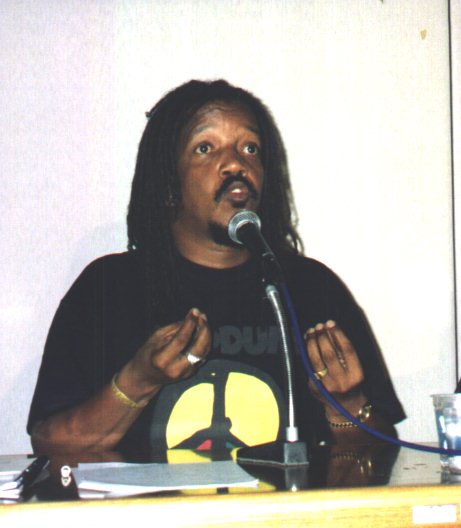

Although Salvador has been described as "the black capital of Brazil," a stranger who entered a business office in one of the city's skyscrapers will frequently see no black people other than a janitor. And blacks at the Congress claimed that though they are 80% of the population of Bahia, only 4% of the students at Federal University of Bahia are black.
The discussions at the Congress quickly pointed out the differences between the United States and Brazil: Brazil has no history of mandatory racial segregation, who is and is not black is a more difficult question in Brazil where most of the population has some African ancestry, and on the downside, Brazil, unlike the United States had never admitted that is has a racial problem. It's policy line is that Brazil is a "racial democracy" and that racism is illegal.
 Olodum
President Joao Jorge Rodriguez
Olodum
President Joao Jorge Rodriguez
Pro-Affirmative Action
Participants said a problem is that a majority of Brazil's population is black but that many don't consider themselves black. Could such people benefit from affirmative action? As one delegate put it, "What good does it do if they've passed for white their entire life and then turn black only when they can get something out of it?"
Also, can there be affirmative action for a majority? Some participants said yes, that South Africa today is implementing such a program of affirmative action to bring blacks there into the mainstream and Brazil should follow that example.
Then the legal question arose. Is affirmative action, which of necessity makes racial distinctions, unconstitutional since Brazil's constitution forbids distinctions based on race?
Proponents of affirmative action argued that Brazil has moved women into the mainstream without concern about constitutional violations and the federal government has passed a law of racial diversity giving incentives to companies that hire people of African descent. Affirmative action they argued is not a constitutional matter.
They also argued that the current laissez-faire policy keeps blacks at the bottom of the social ladder.

Salvador Street Kids